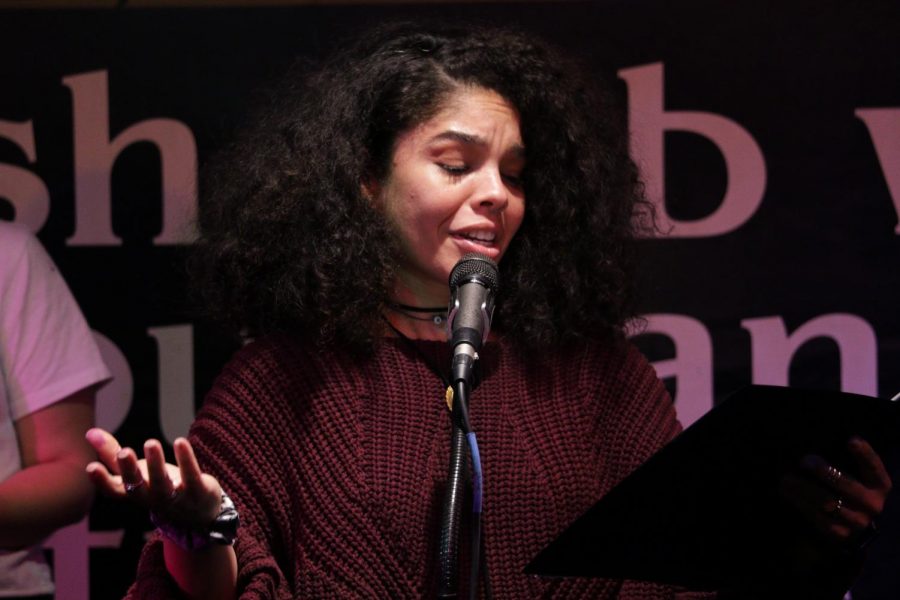The Vagina Monologues: A voice
Students, faculty present short stories about sexual experiences
March 9, 2020
Vaginas—over half of the world’s got one. But in the 1990s, playwright Eve Ensler thought that we weren’t talking about them enough. So she created the Vagina Monologues.
She went around asking women that she met questions about their vaginas. Some of the responses turned out to be quite profound and were turned into monologues that are now performed all over the world. A few of the monologues were performed.
The performance is a series of stories from women of different ages, races and sexual orientations.
The stories range from hilarious to heartbreaking and all the performers were spirited and passionate about their words.
It seemed that the overall purpose of the performance was to empower by talking about things that most people don’t talk about and that many don’t want to talk about.
Jessica Hawkins, a graduate student of the forensic psychology program, has performed in the play for three years. She said that something can be learned from all the monologues.
“The monologues themselves are always insightful when it comes to understanding what many women go through on a daily basis,” Hawkins said.
But whether you can relate to the stories or not, they’re still interesting. They give you a glimpse into the experiences of other people and what they learned from those experiences.
Throughout the performance, audience members shouted things like “Yes girl!” and “mhm!” The monologues excited everyone because it was something they could relate to.
The Vagina Monologues isn’t just for women. Anyone is welcome to attend and anyone can benefit from hearing the stories. In fact, Blake Stone, better known as Mister ULM, was there.
He said that he loved the lighthearted and funny aspects of the play but he loved the serious parts even more.
“There were also serious moments to the monologues that had to do with self worth, self discovery and overcoming tragic events,” he said. “Those were probably my favorite.”
“Our hope is always for the audience to hear these stories and think deeply about what they mean for women,” Hawkins said. “Even if we just change one person’s mind or heart then we are moving in the right direction.”



